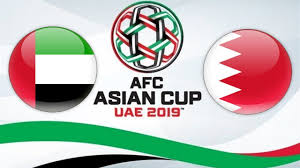By Paul Nicholson
January 4 – The opening match of the Asian Cup tomorrow at the Zayed Sports City Stadium in Abu Dhabi marks what is a significant change in the geographical focus of the international football world for the next four years. It also marks a big step forward for the Asian Football Confederation and its competitive framework.
The AFC Asian Cup is the second oldest continental football championship in the world after the Copa America, having held its first edition in 1956 in Hong Kong. The 17th edition of the tournament sees an expansion to a 24-team finals format, the introduction of video referees for the first time on the continent, and an aggressively buoyant federation putting its football nations first as it asserts itself on the global stage.
Off the pitch the stories are too often dominated (though inevitably) by geo-political regional discord, nations struggling to fulfil fixtures and border blockades. But beneath this is a game that the players and officials are unbending in their determination to get played. Their struggles and commitment to the sport is somewhat humbling in comparison to the money-driven ego-dominated world of European club football and its millionaire and too often self-obsessed players and owners.
The UAE is hosting national teams from Palestine, Yemen, Syria, and Iraq – their football stories alone will become the stuff of legend for football fans whatever their nationality. Is there really a true football fan anywhere in the world that doesn’t want to see Palestine and Syria in Group B action?
While football may just be a small part of their national struggle, it will certainly become a part of their national identity in the eyes of the rest of the world as a result of this tournament. It is a moment of life affirmation – for many of these countries, federations, players and officials a celebration of life and their national humanity, more meaningful than political disputes or deathly battles for power and control that too often define their daily lives.
This tournament has very many stories to tell.
Tournament opener
So what about the football? The UAE vs Bahrain is a classic big vs little encounter on and off the pitch – the kind of dual match-up that only football can provide. The UAE will start as one of the tournament favourites, despite being without their best player. Bahrain will be competitive but are very much rebuilding with a young.
Watching from the stands will be Sheikh Salman bin Ibrahim al-Khalifa,the Bahraini president of the AFC and current favourite to win another term leading the organisation. Alongside will be one of his rivals for the presidency from the UAE, Mohammed Khalfan al-Romaithi. That match-up will be played out over more than 90 minutes.
In Australia four years ago, the UAE surprised many by reaching the semi-finals, going down to eventual winners Australia. Since then their form has disappointed local fans but they still have quality in their line up including striker and 2015 AFC Player of the Year Ahmed Khalil, and in Alberto Zaccheroni a highly experienced manager.
Missing will be their best known player, Omar Abdulrahman who underwent ligament repair in Barcelona recently after injuring his knee playing for Saudi club Al Hilal. But even so, and on home ground, they will start as solid favourites.
Bahrain’s Czech coach Miroslav Soukup in contrast is blooding a new generation of young players having replaced household names like Ismael Abdullatif, Faouzi Aaish and Abdulla Al-Hazaa. Much of the team’s hopes will be built around striker Abdulla Yusuf Helal who has been finding form in Ireland with Bohemians.
At the last Gulf Cup, Bahrain impressed by reaching the semi-finals, holding both the UAE and Iraq to draws before losing to eventual winners Oman in the semi-finals.
Let the fun and games begin…on the pitch. It has already started off it.
Contact the writer of this story at moc.l1745645297labto1745645297ofdlr1745645297owedi1745645297sni@n1745645297osloh1745645297cin.l1745645297uap1745645297


